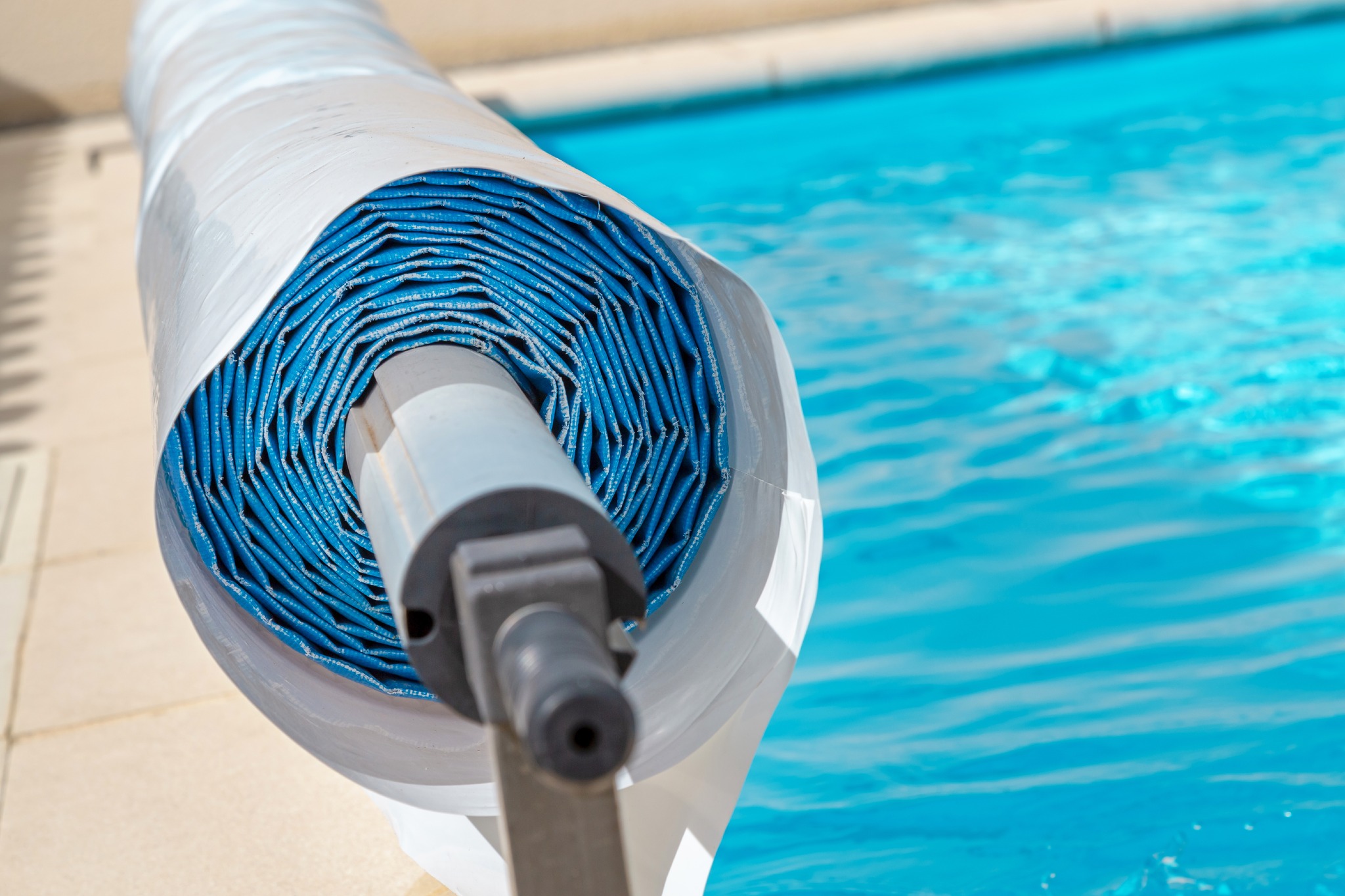The right pool cover is not only an important safety measure, but also plays a key role in reducing your pool’s evaporation rate when used correctly – up to 95 percent! Pool covers come in a range of materials and can be used on indoor or outdoor in-ground or above-ground pools, providing additional benefits like less-frequent cleaning and reduced chemical usage.
Read on to learn more about different types of pool covers and decide which is best for your backyard oasis.
Solid Pool Cover
- A solid pool cover can reduce evaporation by up to 95 percent.1
- In the case of heated pools, solid covers can save between 50 to 70 percent of pool heating costs. 1
- They are comprised of a heavier, more durable material than other covers, allowing them to block UV rays and provide extra safety protections in case of falls.
- Water may collect on top of the covers, which could require a pump to remove.
Mesh Pool Cover
- While a mesh pool cover can also be used as a safety element, it does allow more evaporation to occur when compared to a solid cover due to its strainer-like design. The higher evaporation amount is negligible, with most mesh covers still reducing rates by about 90%.2
- Alternatively, the design will also allow for any rainfall to enter your pool and help you to reuse water.
- The light-weight material also makes the cover easier to handle while permitting water to pass through to the pool below, thus eliminating the need to pump water off the cover.
Solar Covers
- Solar covers are designed to use the sun’s energy to heat your pool and come in several shapes and sizes.
- This variety of pool covers can help reduce evaporation rates by 50 to 95 percent depending on the shape and coverage of the cover. 1
- Bubble covers are a type of solar cover made up of small thermal bubbles that help capture heat. A bubble cover typically covers the entire length of your pool helping to prevent debris from entering the water, but they are not designed to serve as a safety tool.
- Solar rings also fall under the solar cover category. This type of cover is made up of several bubble discs, which are less bulky than a normal bubble cover. However, their ring-like design exposes more water space and may lead to a higher rate of water evaporation.
Liquid Evaporation Suppressant
- Some pool owners prefer to take a different approach to reduce their pool’s evaporation. Liquid evaporation suppressants are alcohol-based treatments that cannot be seen or felt when applied to your pool.
- The suppressant is less dense than water and floats at the surface to reduce water waste. Pool owners will need to apply this product on a regular basis to ensure that it is working to prevent evaporation.
- Temperatures may also impact how often this product is used, as warmer days will cause water to evaporate more quickly than colder temperatures.3
Types of Pool Covers and Their Attributes1
| Type | Effectiveness at Reducing Evaporation When in Use | Can It Serve as a Safety Cover? | Additional Information and Considerations |
| Solid/mesh | Up to 95% | Yes | Mesh covers are lighter weight than solid covers but allow more evaporation to occur |
| Solar (bubble cover, solar rings) | 50 to 95% (varies based on shape and coverage) | No | Solar covers are designed to use the sun’s energy to heat the pool. |
| Liquid evaporation suppressant | 15% | No | Non-toxic, chemical evaporation suppressant is applied to pool surface on a regular basis |
No matter what type you use, pool covers are an important water conservation measure for pool owners, helping you enjoy your retreat while still being water wise. We encourage you to click around the website and find more time to improve your water conservation habits.
Resources
1 EPA WaterSense. (n.d.). Jump Into Pool Water Efficiency. Environmental Protection Agency.
2 Marketing, & Covers, A.-S. P. F. &. (2022, August 15). 5 benefits from installing a mesh pool cover for your pool. All. https://allsafepool.com/benefits-from-installing-mesh-pool-cover/
3 Evaporation and the water cycle completed. Evaporation and the Water Cycle | U.S. Geological Survey. (2019, June 8). https://www.usgs.gov/special-topics/water-science-school/science/evaporation-and-water-cycle

